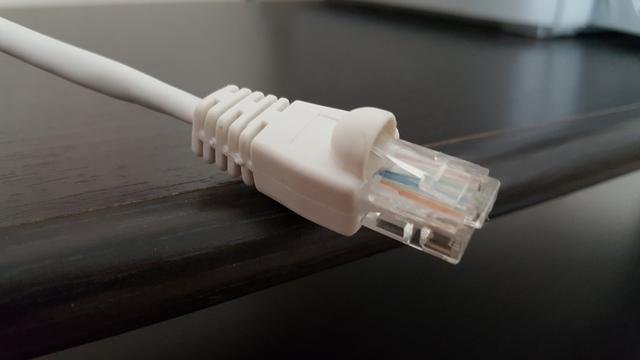The competing interests of American public and private ISP constituencies

Setting the scene of American broadband
It would seem that in America, there are entirely different and opposed constituencies behind private internet access services. If you have internet access to your home, you are most likely limited to one or two of the following choices: Comcast, Time-Warner, Frontier Communications, Cox Communications, ATT or Verizon. Survey after survey, year over year, these companies have been among the most hated in America.
I believe that the reason those companies are hated so much is because they do not recognize their own customers as constituencies that have the power to hold them accountable. For the big private ISPs, their constituency is not the customer, it's the shareholder. This dynamic explains the apparent indifference and even contempt that upper management at private ISPs have for their customers.
As evidence of contempt of customers exhibited by the major ISPs, one only need look at the way our government has been neglecting the Net Neutrality issue. In the FCC, Ajit Pai has spearheaded a movement to repeal the Net Neutrality rules adopted by the previous administration in 2015. Those rules helped to resolve peering issues between ISPs, content providers and the backbone. They also protected customers and gave them a voice at the FCC, a way to complain about shoddy service and to impose penalties for blocking or slowing down service.
Further evidence is in a Republican Congress nearly bereft of any sympathy for the consumer. All of them are millionaires, and many of them are aloof from the internet and the technology used therein. The star of that circus is Marsha Blackburn (R - TN), a champion of incumbent ISPs, and recipient of their largess. Blackburn has proposed pending legislation that would enshrine Ajit Pai's repeal order as law and seek to prevent the states from enacting their own Neutrality rules.
An emerging trend
According to a recent study summarized in an article published by Ars Technica, a new competitor to private internet access has emerged: community broadband. The study was conducted at Harvard University and shows two very interesting and consistent patterns of behavior:
- Public internet access is more transparent than private ISPs are about pricing.
- Public internet access costs less than private internet access.
Worth noting here is that the study is based on data collected by Community Networks, a non-profit organization dedicated to promoting public internet options. Community Networks is part of the Institute for Local Self-Reliance, an organization that champions local control over the economy. I discovered Community Networks years ago while researching articles I was writing on the topic of broadband deployment. I often cite them in articles on this topic because they are a solid resource on everything about community broadband, from the tech to the politics to the money behind it.
When I do cite Community Networks, I often point out that they have found more than 500 municipalities nationwide that have built their own internet access service to fill the void left by the private ISPs. All those communities are evidence of a void of service, a market failure, a lack of response to demand, that the ISPs refused to fill. It's also worth noting that the constituencies behind public or community broadband networks are not opposed to each other - in fact, they are transparent and they cooperate openly, in a manner that is entirely above board. Those constituencies are the residents and the community networks that serve them. Community Networks are directly accountable to the residents they serve, and the residents have a voice in the decision making process of their local ISP.
The Harvard study and the article by Ars Technica clearly show why the private ISPs are fighting community broadband tooth and nail. The private ISPs make their money through gamesmanship with teaser pricing, periodic price increases and fees hidden in tiny print on the statements. In contrast, community broadband has pricing that is transparent, has remained relatively flat, and it's easy to understand. Community broadband is accountable to their customers, private ISPs are not.
The market failures incurred by American broadband investors
But here is where it gets really interesting in the Ars Technica article:
AT&T's terms of service prohibit "systematically collect[ing] and us[ing] any Content including the use of any data mining, or similar data gathering and extraction methods." Verizon's terms say that "authorized use of this page is limited to the review of service availability information, for a particular address or phone number, solely by persons interested in purchasing Verizon service or making changes to existing Verizon service."
The terms of service on ATT and Verizon websites prohibit the use of data on the website for price comparison. Seriously? Who is promoting this kind of behavior? It would have to be investors.
What kinds of investors?
Morningstar is one of the top stock research companies in the world and if there is something you want to know about a stock, Morningstar is the place to go.
Well, I reviewed the top cable and phone companies on Morningstar's website. I found a trend emerging. The Vanguard mutual fund is far and away the top investor in the top 4 internet service providers. Therefore, they would have the greatest influence on how internet service providers behave. Vanguard ownership in ATT stock is implicit approval of the way ATT restricts access to their data for price comparison purposes.
I was actually hoping to find a sizable investment by Vanguard in real estate, but their biggest fund is only $7.2 billion, a drop in the ocean of a market worth trillions. But I think we can confidently say that the largest investment firms and institutions have a vested interest in keeping demand for real estate in cities high.
More to the point, a review of articles at the Community Networks site shows a consistent pattern of behavior: the largest ISPs neglect or ignore small, rural communities. Even cities like Salt Lake and Chattanooga have been neglected by the biggest ISPs. Those two cities (and their respective suburbs) have responded by building some of the largest and fastest community broadband networks.
Are the ISPs dividing territory and refusing to compete?
I have been living in Salt Lake City for 10 years. I once lived on a street where there was only Qwest (now Centurylink) and Comcast providing service. On that street, only one side of the street had Comcast service. The other side did not. I lived on the side of the street that did not have Comcast service. All I could get from Centurylink was 5 Mbs and they were only guaranteeing 80% of that. This contrast in service suggests to me that Comcast and Centurylink were refusing to compete with each other. It's like they divided the street as territory.
In that same neighborhood, Utopia (Utah Open Infrastructure Agency), a community network for 11 cities in Utah, had stopped building out their network 2 blocks from my house. So every few months, I'd call Utopia and Comcast to see if they were available at my house.
It was only through sheer luck that I managed to get Comcast connected to my house. My wife and I were visiting a home and garden show at a local venue when a saleswoman barked at me, "Hey, you want Comcast?"
"Sure, if you can hook me up." I told her my sob story of just how hard it was to get Comcast to connect to my house.
"I'll get you connected. Give me your phone, number, address and email and I'll make it happen." In two and a half weeks, I was connected with 25 Mbs down and 5mbs up - at least that was what I was paying for. I tested that connection at something closer to 50 Mbs. Compared to Centurylink this was a great deal. No more service interruptions. No more slow service, and despite what you may have read in the news, I actually got decent customer service from Comcast.
Fast forward 8 years and I've moved to a new house, but I've stayed in West Valley City, planning on that eventuality that Utopia would be available in my neighborhood. Since we've moved to this house, I could only get 20 Mbs from Centurylink, which is odd considering that another house a couple streets away from me is getting 80 Mbs. I guess Centurylink hasn't been all that happy with all the articles I've written chastising them. Here, Centurylink was the only wired ISP for years and Comcast was again, absent.
I just signed up for Utopia a couple days ago. I'll get 250 Mbs up and down for $37, plus the connection fee, which pays for the infrastructure, the fiber connection. Eventually, I will own the fiber connection and I'll just pay $37 per month. The other $30 actually goes towards the connection so that I will eventually own it. "So that's $67 per month plus taxes and fees, right?"
"No, it's a flat fee. $67 is what you will pay. $37 to us, $30 to Utopia," says the Xmission customer service representative. Xmission is the oldest ISP in Utah. I went with them for their experience, and Utopia advocacy. Their support of Utopia is a big part of the success of Utopia from a political point of view. Local dissatisfaction with incumbent ISPs, Comcast, Centurylink, Rise and even Vivint did the rest of the work.
What is the end game?
The purpose of this behavior seems to be to herd everyone to the largest metropolitan areas to maintain maximum political control. This is consistent with observed behavior. People in large cities tend to ride alone in their cars. Their costs are higher, so they spend more time working. They don't have time to participate in politics.
In contrast, people in smaller towns talk to each other. When they're motivated, they have meetings and they show up because their cost of living is lower (rural areas tend to have far lower housing costs than large cities). Because groups are smaller in small towns, they are easier to rally to overcome pain points, and internet access is a serious pain point for smaller cities and towns. They are the low hanging fruit of change.
I've seen this myself first hand. The city of Los Angeles has been wrestling with the idea of community broadband for years, but they just can't seem to get it together. It seems that big money from big ISPs has been confusing them.
On the other hand, a long train of small towns and counties in Colorado have been asserting the right of local control and self-determination with respect to broadband after spending more than a decade pleading with incumbent providers for higher speeds and greater access. As of this writing, more than 120 municipalities have secured local control through a legislative loophole in the now infamous Colorado law SB152, that codifies a process that allows cities to escape.
I have reviewed the articles at Community Networks and have found a common theme among their articles: the smaller the town, the greater the odds that a public broadband service will prevail. I believe the reason for this is that it is just not worth the money for the incumbents to get involved in the local political process.
I believe that all of this relates to a simple yet difficult to see cause: the people who own the most valuable land want to maximize their rents. The way to do that is to cram as many people into large cities as possible. Study after study has shown the reluctance people have to giving up internet access. Internet access is now a bona fide utility, but you won't hear Comcast admit it, and they would rather not hear us talk about it like that. The market failure of ISPs in America seems peculiarly designed to ensure that the best fiber service can be found in large cities while relegating small towns and counties to DSL.
This perspective, that landowners want to maintain and/or increase their rents by cramming people into their cities by restricting internet access to the cities is inspired by this article, Economist Josh Ryan-Collins: How Land Disappeared from Economic Theory, and the following passages therefrom, which caught my eye many months ago:
The classical economists feared that land-owners would increasingly monopolise the proceeds of growth as nations developed and desirably locational land became relatively more scarce. Eventually, as rents rose, the proportion of profits available for capital investment and wages would become so small as to lead to economic stagnation, inequality and rising unemployment. In other words, economic rent could crowd out productive investment.
...
Ricardo and Smith (both economists) were mainly writing about an agrarian economy. But the law of rent applies equally in developed urban areas as the famous Land Value Tax campaigner Henry George argued in his best-selling text ‘Progress and Poverty’. Once all the un-owned land is occupied, economic rent then becomes determined by locational value. Thus the rise of communications technology and globalisation has not meant ‘the end of distance’ as some predicted. Instead, it has driven the economic pre-eminence of a few cities that are best connected to the global economy and offer the best amenities for the knowledge workers and entrepreneurs of the digital economy. The scarcity of these locations has fed a long boom in the value of land in those cities. (emphasis mine)
As rents rise due to concentration of populations, capital concentrates, inequality yawns, and the temptation to buy protection from the state increases. Here is the point then: public broadband is probably the best weapon we have at our disposal to fight the "landed interests" that would cram us all into cities. Those interests have figured out that if people can get a good internet connection (100 Mbs up or better, up and down) in rural areas, then they have no other compelling reason to stay in the cities. Many more people will be able to work remotely for higher pay, while enjoying lower rents. Not a very nice formula for the landed interests, especially if internet access is provided by a public broadband network.
From social media to digital currency to remote work to internet enterprise, it is in our best interests to promote community broadband. Community broadband does more than just disrupt the incumbent ISPs. Community broadband disperses political power in ways that entrenched interests cannot overcome because the purpose of networks is to distribute power, not concentrate it.


A basic guaranteed income in the context of Maslow's Hierarchy of Needs
A sort of political movie review: Star Wars: Rogue One
Happiness isn't getting everything you want - happiness is a skill
The opposite of love is not hate, it is apathy
Fate, impunity and altruism
If you want me to upvote and resteem your post to my 36,000+ followers for free read my profile for instructions: https://steemit.com/@a-0-0
Interesting post.. Thanks.. @digitalfirehouse
You're welcome.
Nice post.. Thanks have share.. Brother.
I work for a local non-profit cooperative ISP in Patagonia, Argentina, we were (and still are) for the last 2 years trying to implement quality policies in order to improve social approval in the city. Many people (in fact, I don't know how many, but they speak quite loudly) think our cooperative delivers very bad service, even while we give personalized tecnical and commercial support, and an over-the-average quality of internet connection, compared to the big private ISPs which serve most of the country. Thanks for sharing the experience from USA, it very interesting for me to notice how this is a globalized problem, even for the biggest countries.
Check out community networks and contact Chris Mitchell. I think he'd be glad to lend a hand.
Awesome post!! Keep it up and check out THIS POST as well as I have something similar.